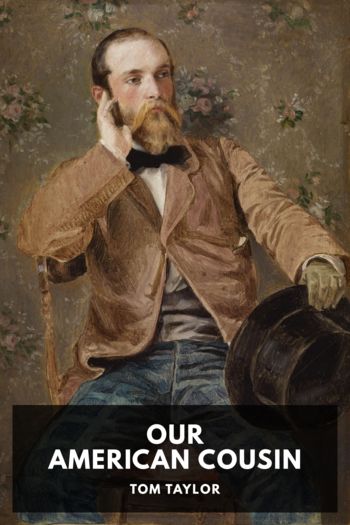Daughters of the Summer Storm by Frances Statham (best sci fi novels of all time .TXT) 📗

- Author: Frances Statham
Book online «Daughters of the Summer Storm by Frances Statham (best sci fi novels of all time .TXT) 📗». Author Frances Statham
Beside her, Ruis replied, "One fellow did—several years ago. But he had been drinking too much aguardente. It was his own fault."
"Did they. . . find him?"
"No, Maranta. But you are not to think of such unpleasantness. You are supposed to be enjoying the celebration."
Vasco, now seated on the other side of Maranta, said, "This is a mere trickle, dear wife, in comparison to Iguaçu Falls in the Paraná. It plunges over two hundred feet straight down and even carries huge trees over the precipice."
"Then I am glad we are not at Iguaçu. This place looks dangerous enough to me."
Despite the gaiety, Maranta felt there was something menacing in the waters that foamed and rushed to disappear over the abrupt precipice.
"Look, Maranta," Dona Isobel said. "They are lighting their candles. Soon it will be time."
"Offerings for a beautiful woman," Vasco commented. "The river is the same, waiting to take anything offered to her. Do you have something you wish to contribute, Maranta, so that the goddess can smile on you for the new year?" he asked.
"No, I have brought nothing with me."
"What about the comb in your hair? Iemanjá might be content with that."
"Do not tease her, Vasco," Ruis warned. "She is not at home with our pagan ways."
Vasco laughed and turned to Dona Isobel. "What about you, Dona Isobel? Do you not wish to appease the goddess? Isn't there some sin you wish the 'mother of waters' to forgive?"
Dona Isobel's mouth tightened. "No. Nothing," she said, glaring at Vasco.
Maranta caught sight of Sassia among the dancers. All at once, she was not the civilized young girl Maranta had known back at the fazenda. She was transformed by the vibrant, throbbing rhythm of the music. In a primitive ritual, she moved and swayed and chanted. Maranta kept her eyes on Sassia when the signal was given.
At midnight the sirens and bells sounded. And the shrieking began. The river was suddenly filled with rushing figures, surrounded by chains of candles, offerings swiftly rushing toward the falls. The celebrants followed to a certain point and then stopped to watch, while Iemanjá took their offerings, sweeping them over the falls and out of sight.
The ceremony was over. The people climbed out of the river. Iemanjá had been appeased for another year.
Maranta and Dona Isobel climbed back into the palanquin. As they retraced the route to the fazenda, the torches were extinguished along the way, one by one. Maranta took a last glance toward the falls. She could not see it, but the roaring sound of the waters stayed with her far into the night and invaded her dreams.
The night was significant for another reason. Maranta had never left little Paulo for even that short a time before. Going immediately to the nursery, she saw her son had been well cared for in her absence. The wet nurse was feeding him, and she watched for a moment, seeing his little hands curled in pleasure at having his appetite satisfied. Breast-feeding had been denied her because of her illness. Except for holding him and loving him, she realized the child could well do without her. And that knowledge hurt her.
When several months passed and Innocencia's brothers did not return to the fazenda, Maranta finally relaxed. Sometimes, she wondered if that frightening episode had ever taken place except in her mind—the men bursting into her room and the angry words spoken by Ruis.
The warm season gave way to winter, with a chill in the air and a promise of frost, the enemy of the tender coffee plants. Maranta could tell that Ruis was worried about the crop. He seemed preoccupied at dinner, and his face showed the strain of long hours of work and worry. But the weather cleared and the danger disappeared. The snowy white blossoms on the slopes turned into berries, and the waiting for their harvest began.
During this waiting period, Ruis decided they should go to São Paulo. "I have business in the city," he said, "that I have put off far too long. And while we are there, we might as well stay for the Intrudo season."
Dona Isobel spoke. "Then you intend for us to travel with you, Ruis?"
"Yes, Isobel. I think Maranta would enjoy seeing the festivities. The last trip was not a particularly pleasant one for her."
"I don't understand. What is this Intrudo?" Maranta asked.
"It is similar to Carnival in Rio," Dona Isobel explained. "It's the time of gay festivities and parties before Lent."
Maranta nodded. "Like Mardi Gras in New Orleans."
"Of course, only the rough elements roam the streets, throwing flour on each other. We will avoid that part and attend the private parties instead," Isobel finished explaining.
Ruis, looking at his brother, said, "And it will be good to have you also, Vasco. It is past time for you to visit the city again."
Ruis's words brought displeasure to Vasco. He frowned and said, "No, Ruis. I will never go back to São Paulo to be stared at and pitied. You will have to go without me."
Ruis's lips tightened. "I will not force you, Vasco. But your friends in the city will miss seeing you."
"I have no friends," he answered bitterly. Ruis changed the subject.
Preparations were made for the trip with the canoe fleet. Maranta and Dona Isobel spent the rest of the week seeing to the packing of clothes and other necessities. Vasco, still adamant, elected to remain at the fazenda.
On their last evening before leaving, Dona Isobel retired early for the night, and Vasco disappeared to his own apartments on the first floor as soon as dinner was over.
Maranta paced up and down in her bedroom. She could not go to sleep for thinking of her baby. It had been a wrench to leave him just for one evening. But to be gone at least a month—he was growing so fast. Maranta wondered if she would recognize him when she returned. Worse, he might have forgotten her. He was just now beginning to smile and follow her with his





Comments (0)